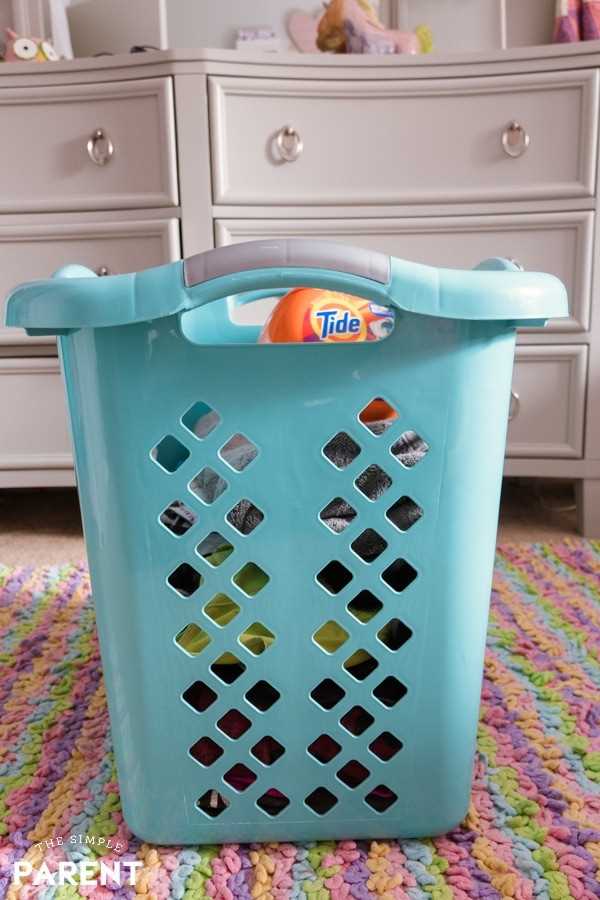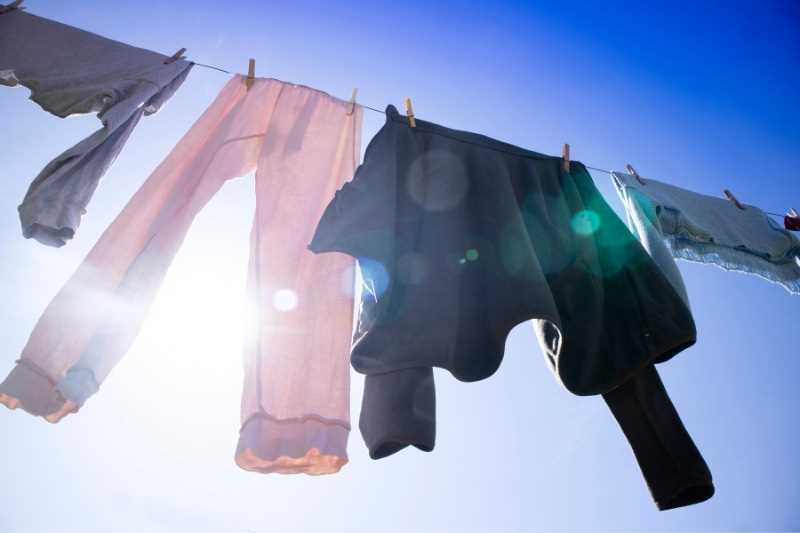




Summer is the season of sunshine, outdoor activities, and endless trips to the beach. With all the fun, however, comes a never-ending pile of laundry. From swimsuits and towels to sweaty workout clothes, summer can quickly turn into a laundry nightmare if you don’t have a proper laundry schedule in place. In this article, we will share some timing tips to help you stay on top of your laundry game and ensure that your summer clothes are fresh and clean.
One of the most important tips for a successful summer laundry schedule is to establish a regular routine. Set specific days of the week for doing laundry so that you can stay organized and avoid getting overwhelmed by a mountain of dirty clothes. By sticking to a schedule, you’ll be able to plan ahead and ensure that you always have clean clothes when you need them.
Another crucial aspect of your summer laundry schedule is timing. It’s best to do your laundry early in the morning or late in the evening when the temperature is cooler. This way, you can take advantage of natural drying methods, such as hanging your clothes outside. Not only will this save on energy costs, but it will also give your clothes a fresh, outdoor scent.
Avoid leaving wet laundry in the washing machine for extended periods, especially in the summer heat. This can lead to unpleasant odors and even mold growth. As soon as your laundry cycle is complete, promptly transfer the clothes to the dryer or hang them up to dry. If you’re using a dryer, make sure to clean the lint trap regularly to prevent a fire hazard.
In conclusion, having a well-planned laundry schedule is essential during the summer months. By establishing a routine, timing your laundry sessions wisely, and ensuring proper drying, you can keep your summer clothes looking and smelling fresh all season long. So, don’t let the laundry pile up, take control of your laundry schedule, and make the most of your summer adventures.
Optimize Your Summer Laundry Schedule
In the summer, with the warm weather and increased outdoor activities, it’s important to have an efficient laundry schedule to keep up with the constant washing. Here are some tips to help you optimize your summer laundry schedule:
Create a Routine
Establishing a routine for your laundry can help you stay organized and ensure that you don’t fall behind. Set specific days and times for doing laundry, and stick to your schedule as much as possible. Consistency is key to staying on top of your summer laundry.
Sort Your Laundry
Sorting your laundry before washing is essential for efficient washing and drying. Sort your clothes into different piles based on color, fabric, and level of dirtiness. This will ensure that your clothes are cleaned properly and prevent any damage or color bleeding.
Use Quick Wash and Dry Cycles
During the summer, when you have more items to wash and less time to spare, take advantage of quick wash and dry cycles. These cycles are designed to clean and dry your clothes in a shorter amount of time, making them perfect for summer laundry when you’re in a hurry.
Hang Dry when Possible
Clothes that don’t require ironing or that you are comfortable with having a more relaxed look can be hung to dry instead of using a dryer. Hanging clothes to dry not only saves time and energy but can also help preserve the lifespan of your clothes while giving them a fresh summer breeze fragrance.
Set Up a Folding Station
To make the laundry process more efficient, set up a folding station in your laundry room or somewhere nearby. Having a dedicated space for folding and sorting clean clothes will help you stay organized and prevent the clothes from piling up.
Involve the Family

Getting your family involved in the laundry process can help lighten the workload and ensure that everyone has clean clothes when they need them. Assign specific laundry tasks to each family member, such as sorting, folding, or putting away, and establish a system that works for your household.
Plan Ahead for Stain Removal
In the summer, stains from grass, ice cream, sunscreen, and other outdoor activities are common. To avoid spending extra time treating stains, plan ahead by keeping stain remover products nearby and immediately treating any stains as soon as they happen. This will save you time and ensure that your clothes stay in good condition.
Consider Outsourcing
If your schedule is especially busy during the summer or you simply prefer to spend your time on other activities, consider outsourcing your laundry. Many laundromats and laundry services offer wash and fold options, where you drop off your dirty laundry and pick it up clean, folded, and ready to be put away. This can be a convenient option for those who want to save time and energy.
By following these tips, you can optimize your summer laundry schedule and spend less time doing laundry and more time enjoying the warm weather and fun activities that summer has to offer.
Divide Your Laundry Tasks
Dividing your laundry tasks can help you stay organized and ensure that you tackle all necessary laundry during the summer months. Here are some tips on how to divide your laundry tasks efficiently:
Categorize your laundry
The first step in dividing your laundry tasks is to categorize them. You can break down your laundry into categories such as colors, fabrics, and level of dirtiness. By doing this, you can prioritize what needs to be washed first and plan your schedule accordingly.
Create a schedule

Once you have categorized your laundry, create a schedule for each category. This will help you stay on track and ensure that you are not overwhelmed with laundry. For example, you could dedicate Mondays to wash dark-colored clothes, Wednesdays for whites, and Fridays for delicate fabrics. Adjust the schedule according to your family’s needs and preferences.
Involve the whole family
Dividing your laundry tasks can also be a great opportunity to involve the whole family and teach children about responsibility. Assign specific laundry tasks to each family member, such as sorting, folding, or putting away the clothes. This will not only lighten your load but also teach valuable skills to your children.
Invest in organization tools

To keep your laundry tasks divided and organized, invest in some useful organization tools. Consider purchasing laundry baskets or hampers with multiple compartments to separate your categories. You can also use color-coded laundry bags or labels to easily identify each category. These tools will help you streamline your laundry routine and avoid mixing up different loads.
Stay consistent
Lastly, to effectively divide your laundry tasks, it is important to stay consistent with your schedule. Stick to the designated days and follow through with your plan. Consistency will help you maintain an organized laundry routine and prevent a pile-up of dirty clothes.
By dividing your laundry tasks, creating a schedule, involving the whole family, investing in organization tools, and staying consistent, you can efficiently tackle all your laundry during the summer months. Enjoy clean and fresh clothes all season long!
Choose the Right Time of Day

The time of day that you do your laundry during the summer can have a big impact on the overall process. Here are some tips for choosing the right time of day:
1. Early Morning or Late Evening
During the summer, the temperature tends to be cooler in the early morning or late evening hours. This can be a more comfortable time to do your laundry, especially if you don’t have air conditioning in your laundry room. Plus, washing clothes when it’s cooler can help them dry faster.
2. Avoid the Midday Heat
Avoid doing laundry during the hottest part of the day, typically from late morning to early afternoon. The heat can make the laundry room uncomfortable and may also cause your clothes to dry more slowly due to increased humidity.
3. Consider Your Schedule
Take into account your daily schedule and choose a time when you can dedicate enough time to complete your laundry without feeling rushed. Planning a laundry schedule can help you avoid procrastination and ensure that you have clean clothes when you need them.
4. Off-Peak Electricity Rates

Some utility companies offer reduced electricity rates during off-peak hours. Check with your provider to see if there are specific hours when doing laundry would result in lower energy costs. This can help you save money while still getting your laundry done.
5. Coordinate with Other Household Tasks

Consider coordinating your laundry schedule with other household tasks to make the most of your time. For example, you could start a load of laundry while preparing breakfast or folding clothes while watching your favourite TV show. Find ways to multitask and make the process more efficient.
By choosing the right time of day to do your laundry during the summer, you can make the process more comfortable and efficient. Take into account the temperature, your schedule, and any potential cost savings to find the best time for you.
Follow the Weather Forecast
One important factor to consider when planning your summer laundry schedule is the weather forecast. Different weather conditions can affect how quickly your clothes dry and if they will dry at all. By staying informed about the weather, you can ensure that you choose the best days for doing your laundry.
Check the Rain Forecast
Before starting your laundry, it is crucial to check the rain forecast. If rain is expected, it is best to avoid doing laundry on those days, as wet clothes will take much longer to dry. Instead, try to choose days with little to no chance of rain so that your clothes can dry properly.
Take Advantage of Sunny Days
On sunny days, take full advantage by doing your laundry. The sunlight will help speed up the drying process, allowing your clothes to dry faster and more efficiently. If possible, try to plan your laundry on days with clear skies and plenty of sunlight.
Avoid Humid Days
High humidity can make it difficult for your clothes to dry properly. Moisture in the air can cling to your clothes and prevent them from drying completely. If the weather forecast indicates a high humidity level, consider postponing your laundry to a drier day to ensure that your clothes dry completely.
Adjust Your Schedule Accordingly
By following the weather forecast and adjusting your laundry schedule accordingly, you can optimize the drying time for your clothes. Planning your laundry on days with ideal weather conditions will allow your clothes to dry faster and more efficiently, saving you time and energy.
Use Quick Wash and Drying Methods
During the summer, you may find yourself doing laundry more frequently due to increased outdoor activities and hotter weather. To save time and energy, it’s helpful to use quick wash and drying methods. Here are some tips to speed up the laundry process:
1. Quick Wash:
When washing your clothes, consider using the quick wash cycle on your washing machine. This cycle uses less water and shorter wash times, which can help you save time and energy. Just make sure to check the garment care labels to ensure that your clothes can be safely washed on the quick wash cycle.
2. Dry on a Clothesline:

If the weather permits, try drying your clothes on a clothesline instead of using the dryer. This natural drying method not only saves energy but also gives your clothes a fresh scent. Plus, the sun can help remove stains and disinfect your laundry. Hang your clothes in a shaded area to protect them from direct sunlight and prevent color fading.
3. Use a High-Speed Spin Cycle:
Utilize the high-speed spin cycle on your washing machine to remove more water from your clothes before drying. This can significantly reduce drying time and energy consumption. Make sure to distribute your clothes evenly in the machine to prevent unbalanced loads and potential damage to the washing machine.
4. Consider Air Drying Inside:
If outdoor drying is not an option, consider air-drying your clothes inside on a drying rack or clothesline. This method is still more energy-efficient than using a electric dryer. Place the drying rack near a window or in a well-ventilated area to speed up the drying process.
5. Separate Loads by Fabric Type:
To optimize drying time, separate your laundry loads by fabric type. Lighter fabrics such as t-shirts and shorts will dry faster than heavier items like towels and denim. By drying similar fabrics together, you can prevent over-drying items that are already dry and ensure that everything dries in a timely manner.
By implementing these quick wash and drying methods, you can make your summer laundry routine more efficient, saving time, energy, and money.
Organize Your Laundry Space
1. Declutter and Clean
To start organizing your laundry space, begin by decluttering the area. Remove any items or unnecessary clutter that may be taking up space. Sort through your laundry supplies and get rid of any expired or unused products.
Once the space is decluttered, give it a good clean. Dust and wipe down surfaces, and vacuum or mop the floors. This will create a fresh and clean space for your laundry activities.
2. Create Storage Solutions
Next, create storage solutions to keep your laundry supplies neat and accessible. Install shelves or cabinets on the walls to store items such as detergent, fabric softener, and stain removers. Utilize clear plastic bins or baskets to group similar items together, making it easier to find what you need.
3. Sort and Label
Sorting and labeling your laundry items is essential for an organized laundry space. Use divided laundry hampers or baskets to separate lights, darks, and delicates. To make sorting even easier, label the baskets or hampers with their corresponding categories.
4. Hang a Drying Rack
Hanging a drying rack in your laundry space can help maximize your drying options. This is especially beneficial for delicate items that can’t be put in the dryer. Choose a collapsible drying rack that can be easily folded and stored when not in use.
5. Utilize Wall Space
Make use of the wall space in your laundry area by installing hooks or pegboards. Hang items like ironing boards, brooms, or mops to keep them off the floor and out of the way when not in use. This will free up valuable floor space and help to keep your laundry area organized.
6. Keep a Trash Bin Handy

Having a trash bin within reach can make a big difference in keeping your laundry space organized. Use a small bin or even a hanging bag to collect lint, packaging, or any other trash that accumulates while doing laundry. This will prevent clutter and make the cleanup process quick and easy.
7. Maintain Your Organization

Once you’ve organized your laundry space, make sure to maintain it regularly. Take a few moments after each laundry session to tidy up the area. Put away any supplies, fold and put away clean laundry, and remove any debris or lint. By staying on top of the organization, your laundry space will continue to be a functional and efficient area.
Organizing your laundry space can help make the chore of doing laundry more manageable and enjoyable. By following these tips, you’ll create a space that is clean, clutter-free, and easy to use.
FAQ
What is the best time to do laundry during summer?
The best time to do laundry during summer is early in the morning or late at night when temperatures are cooler. This will help save energy by reducing the need for air conditioning and prevent the laundry from taking longer to dry in the heat.
Can I do laundry during the hottest part of the day?
It is not recommended to do laundry during the hottest part of the day in summer. The high temperatures can cause the laundry to take longer to dry and can also put more stress on your washing machine and dryer, potentially leading to damage or malfunction.
How often should I do laundry in summer?
The frequency of doing laundry in summer can vary depending on your needs and lifestyle. If you have a large family or do a lot of outdoor activities that result in sweaty clothes, you may need to do laundry more often. As a general guideline, doing laundry once or twice a week is usually sufficient.
Are there any specific tips for drying clothes in the summer?
Yes, there are a few tips for drying clothes in the summer. Firstly, try to hang clothes outside in the sun instead of using a dryer, as this will help save energy. Secondly, shake out the clothes before hanging them to prevent wrinkles. Lastly, try to hang lightweight and quick-drying items first, so they have more time to dry before the sun goes down.
















